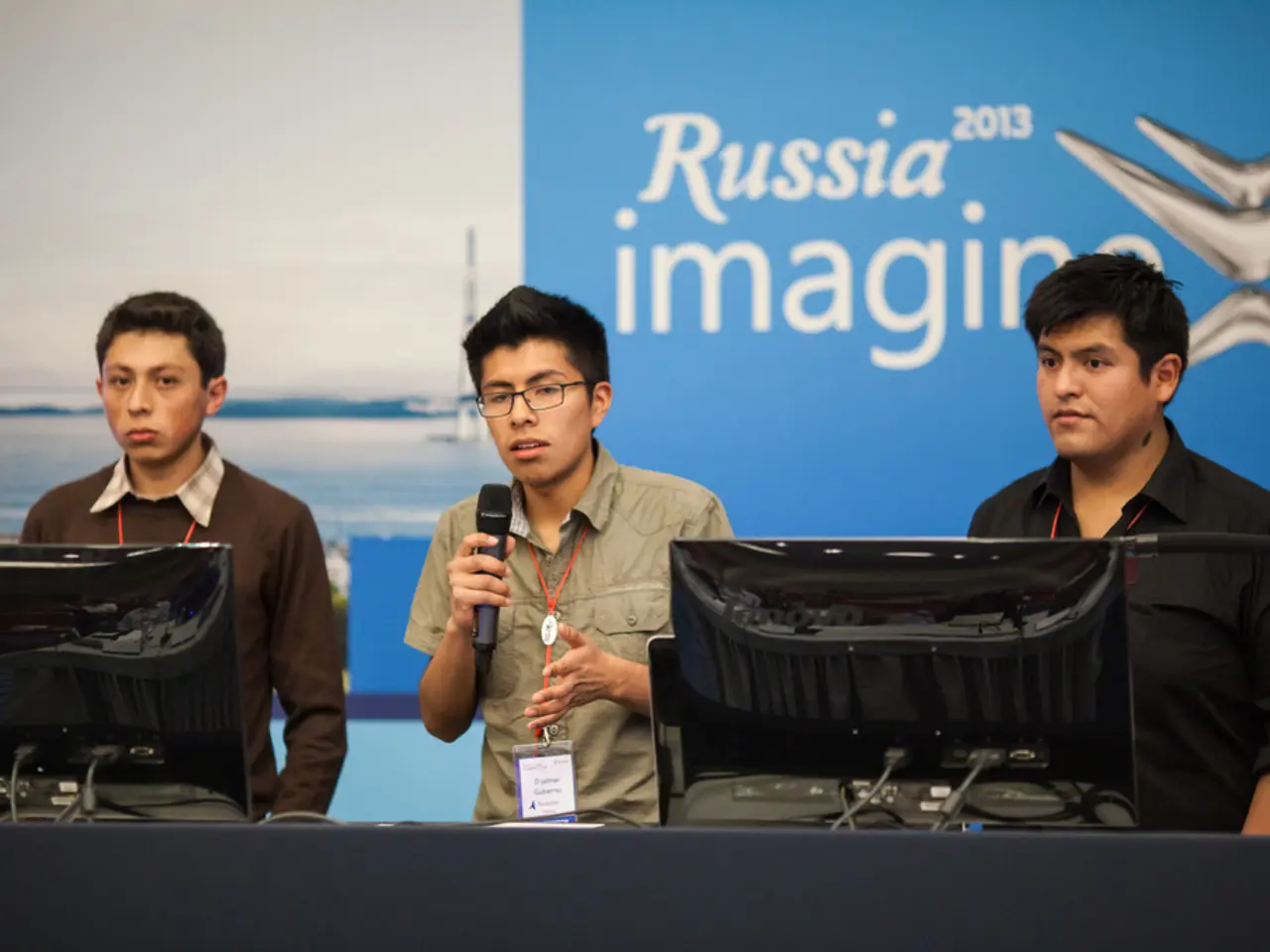United States loosens the restrictions on exporting AI chip technology to the People's Republic of China.
In a significant development, the US government has lifted the ban on Nvidia, a leading tech company, selling its H20 AI chips to China. This decision comes as part of a broader rare earth trade deal between the two nations.
The move follows sensitive negotiations involving rare earth minerals, crucial for various advanced technologies and integral to the semiconductor supply chain. The agreement represents a strategic trade agreement that balances technology export controls with access to vital materials.
Nvidia's CEO, Jensen Huang, recently spoke at a press conference in China, praising Chinese AI and electronic companies such as DeepSeek, Alibaba, Tencent, and Xiaomi. The resumption of AI chip exports to China is expected to unlock billions of dollars in revenue for these companies, underscoring the economic stakes involved.
The lifting of the ban is expected to help stabilize and potentially enhance semiconductor trade flows between the US and China, a key player in global electronics manufacturing. It signifies a temporary easing of technology tensions, potentially reducing pressure on chipmakers who had been constrained by export bans.
However, the move may raise concerns in some quarters about maintaining US technological leadership and protecting sensitive tech from strategic competitors. The decision may also set a precedent for future trade negotiations that weave together technology transfer controls with critical material access, influencing how countries manage supply chain security and technological competitiveness.
It is worth noting that the suspension of Nvidia's AI chip exports to China was due to US concerns about technology transfer and national security. Nvidia's CEO, Jensen Huang, has not yet commented on the implications of the relaxation of restrictions on the company's sales to China.
The US Commerce Secretary has not specified which negotiations led to the change in policy regarding Nvidia's AI chip exports to China. However, the change in policy is not directly related to the US-China trade talks regarding tariffs. Instead, it is the result of trade negotiations involving discussions about rare earth minerals that the US needs from China.
The US needs rare earth minerals from China, which are crucial for the production of semiconductors. The relaxation of restrictions on Nvidia's AI chip exports to China is a significant part of these negotiations, reopening a crucial part of the AI chip supply chain to China.
Nvidia's AI chips are essential in the global AI market, and the relaxation of restrictions may have implications for the global AI market and the US-China tech competition. The company expects to receive export licenses for its AI chip shortly, positioning it to re-enter the Chinese market, a critical market for Nvidia in the global semiconductor supply chain.
Artificial-intelligence developments in China, particularly in companies like DeepSeek, Alibaba, Tencent, and Xiaomi, may benefit considerably from the resumption of Nvidia's AI chip exports, potentially generating billions of dollars in revenue. This move, facilitated by the US government's lifting of the ban on Nvidia's H20 AI chip sales to China, could shape future trade negotiations involving technology transfer controls and critical material access.




